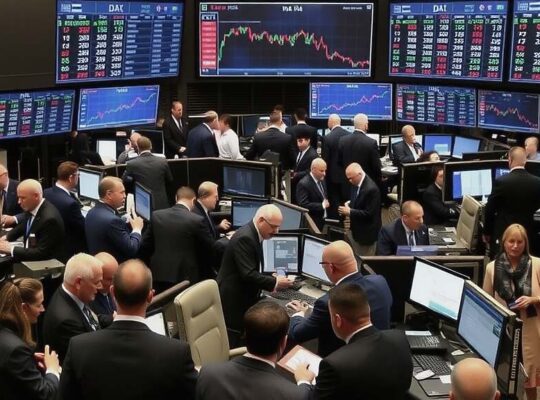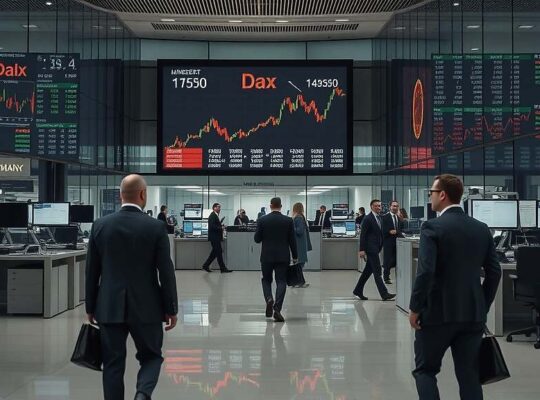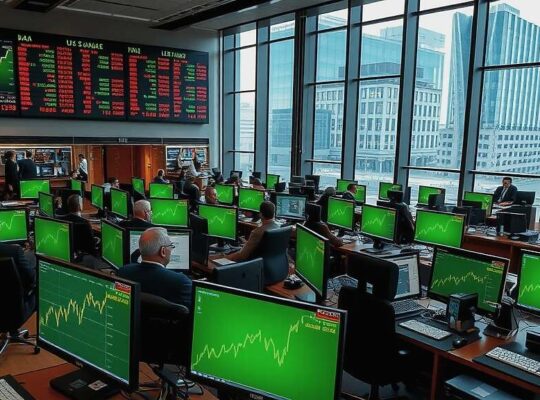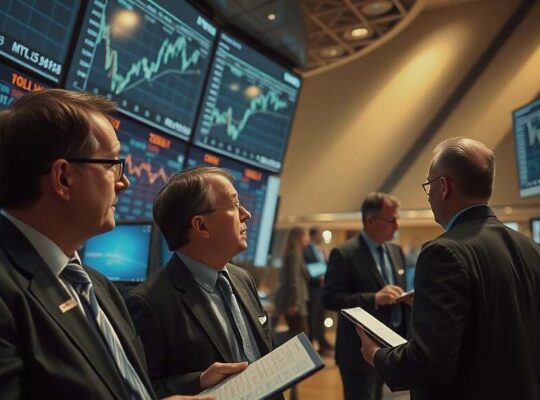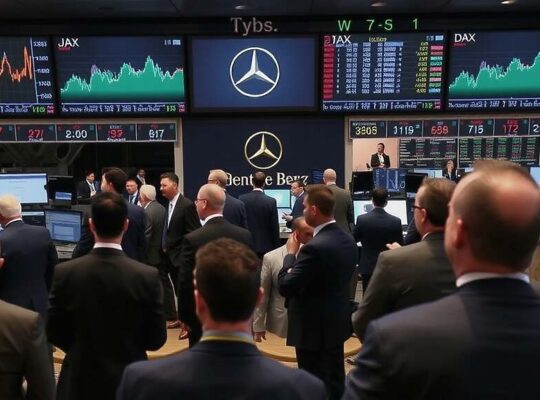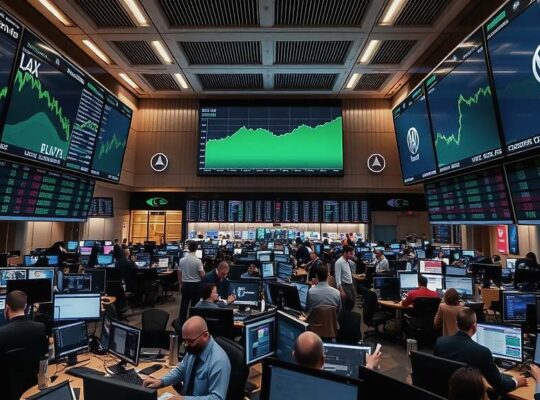The German DAX index experienced a downturn on Monday, reversing an initially positive start to trade in the red by midday. The benchmark index was calculated at approximately 23,775 points, a decline of 0.4 percent from Friday’s closing level. Siemens Energy, Heidelberg Materials and Rheinmetall led the gainers, while Siemens, Bayer and Infineon lagged.
Market analyst Andreas Lipkow attributed the shift to investor caution. “Trading appears somewhat weaker in the continued course” he noted, emphasizing the critical importance of the 23,850-point level as a technical support line. This level coincides with the 200-day moving average, a frequently observed indicator of overall market health. The ability of the DAX to maintain this level in today’s closing prices will be pivotal.
The subdued trading activity reflects a broader hesitancy among investors. With a sparse economic calendar, Lipkow highlighted the significant influence of the US market’s performance. Further declines in US equities are expected to negatively impact the DAX 40, exacerbating existing anxieties. While a cautiously optimistic sentiment remains, market participants are demonstrating markedly more restraint than previously observed.
The euro also weakened against the US dollar, trading at $1.1598, or €0.8622 per dollar. This decline in the euro’s value could create complexities for German exporters and further fuel debate surrounding the European Central Bank’s monetary policy.
A slight increase was recorded in the price of Brent crude oil, reaching $64.40 per barrel. While a marginal increase, even seemingly insignificant price fluctuations are now under intense scrutiny given the ongoing geopolitical uncertainty and inflationary pressures impacting global markets. The focus now shifts to how US markets will dictate the remainder of the European trading day and whether the DAX can effectively withstand external headwinds.




